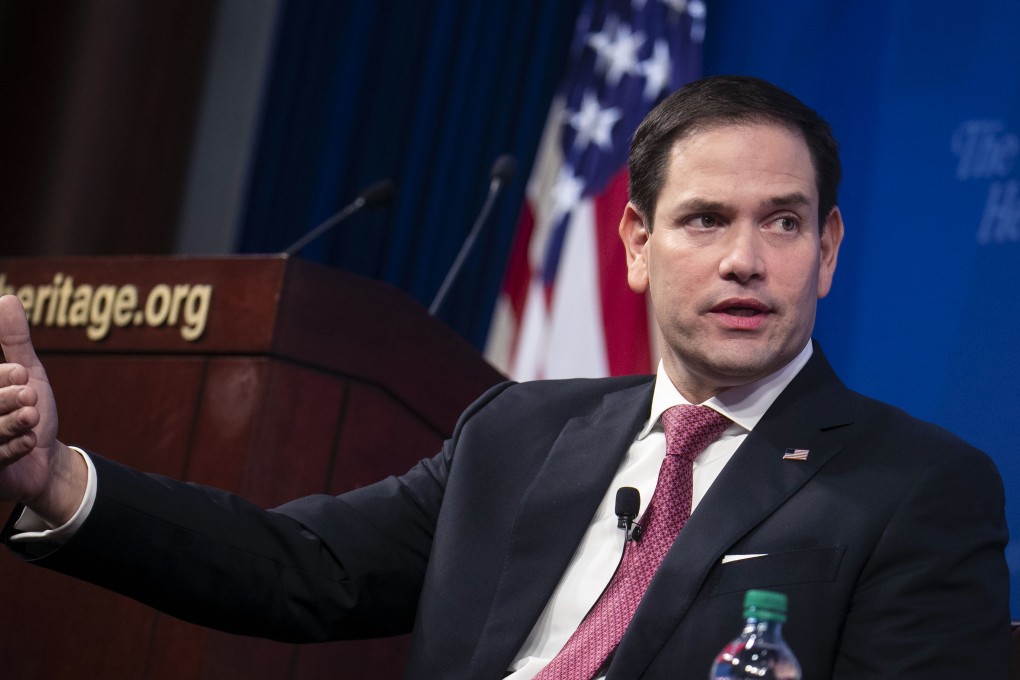US Senator Marco Rubio proposes legislation to counter ‘Made in China 2025’ while top China hands warn White House to ‘course correct’ Beijing relationship
- Rubio seeks to use China’s industrial policy as a blueprint for fighting ‘a threat to US industry’
- Meanwhile, former foreign policy officials start a tour of Washington with warning about China

China faces a tougher fight in its stand-off with Washington after calls to counter Beijing’s global ambitions gained momentum in the US capital on Tuesday.
Republican Senator Marco Rubio proposed legislation that would restrict and tax Chinese investment in the United States to counter Beijing’s “Made in China 2025” (MIC2025) industrial modernisation programme, which includes direct subsidies for domestic companies developing advanced semiconductors.
Many Republican and Democratic lawmakers say the programme threatens US companies in the tech sector.
Meanwhile, an influential group of former top policymakers and China hands delivered a report urging a “course correction” for the bilateral relationship as part of a tour throughout Washington to warn the administration of US President Donald Trump and senior lawmakers about the need to confront Beijing.
Rubio, a Florida senator, announced the release of the report, “Made in China 2025 and the Future of American Industry”, on Tuesday.
It was published by the US Senate Committee on Small Business and Entrepreneurship, of which Rubio is t he committee chair, and says that evaluating MIC2025 will help Washington understand how to respond to China and defend American businesses and jobs.